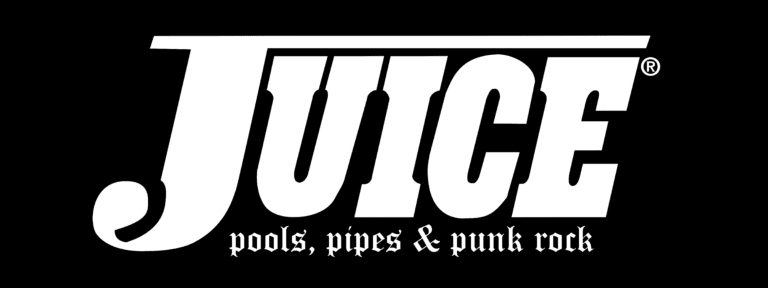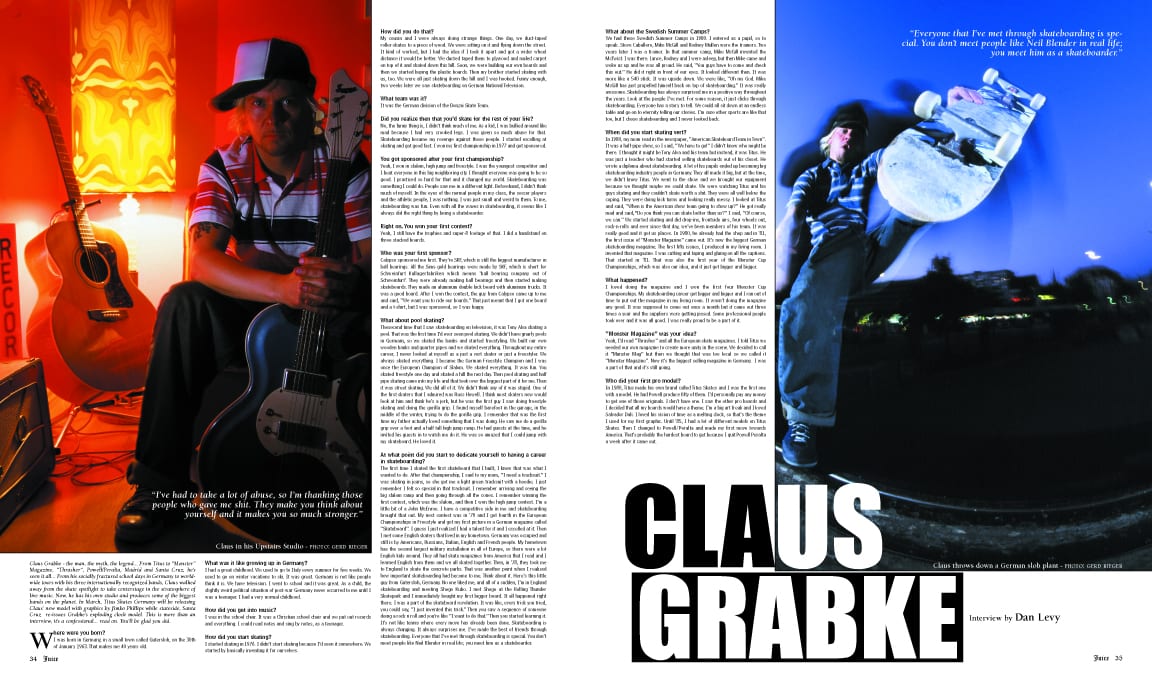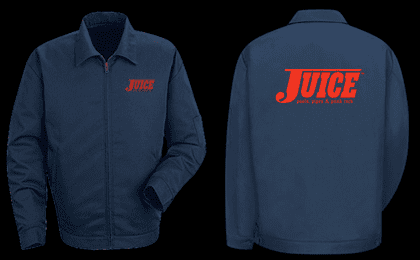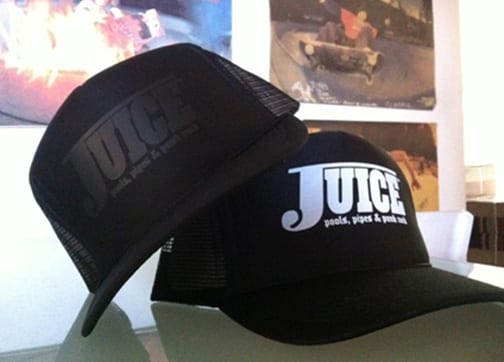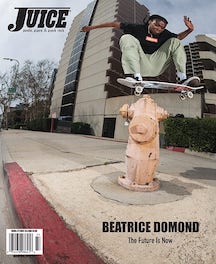INTERVIEW AND INTRODUCTION BY DAN LEVY
PHOTOS BY GERD REIGER
Claus Grabke – the man, the myth, the legend… From Titus to Monster Magazine, Thrasher, Powell/Peralta, Madrid and Santa Cruz, he’s seen it all… From his socially fractured school days in Germany to worldwide tours with his three internationally recognized bands, Claus walked away from the skate spotlight to take center stage in the stratosphere of live music. Now, he has his own studio and produces some of the biggest bands on the planet. In March, Titus Skates Germany will be releasing Claus’ new model with graphics by Jimbo Phillips while stateside, Santa Cruz re-issues Grabke’s exploding clock model. This is more than an interview, it’s a confessional… read on. You’ll be glad you did.
Where were you born?
I was born in Germany, in a small town called Gutersloh, on the 30th of January 1963. That makes me 40 years old.
What was it like growing up in Germany?
I had a great childhood. We used to go to Italy every summer for five weeks. We used to go on winter vacations to ski. It was great. Germany is not like people think it is. We have television. I went to school and it was great. As a child, the slightly weird political situation of post-war Germany never occurred to me until I was a teenager. I had a very normal childhood.
“EVERYONE THAT I’VE MET THROUGH SKATEBOARDING IS SPECIAL. YOU DON’T MEET PEOPLE LIKE NEIL BLENDER IN REAL LIFE. YOU MEET HIM AS A SKATEBOARDER.”
How did you get into music?
I was in the school choir. It was a Christian school choir and we put out records and everything. I could read notes and sing by notes, as a teenager.
How did you start skating?
I started skating in 1976. I didn’t start skating because I’d seen it somewhere. We started by basically inventing it for ourselves.
How did you do that?
My cousin and I were always doing strange things. One day, we duct-taped roller-skates to a piece of wood. We were sitting on it and flying down the street. It kind of worked, but I had the idea if I took it apart and got a wider wheel distance it would be better. We ducted taped them to plywood and nailed carpet on top of it and skated down this hill. Soon, we were building our own boards and then we started buying the plastic boards. Then my brother started skating with us, too. We were all just skating down the hill and I was hooked. Funny enough, two weeks later we saw skateboarding on German National Television.
What team was it?
It was the German division of the Bonzai Skate Team.
Did you realize then that you’d skate for the rest of your life?
No, the funny thing is, I didn’t think much of me. As a kid, I was bullied around like mad because I had very crooked legs. I was given so much abuse for that. Skateboarding became my revenge against those people. I started excelling at skating and got good fast. I won my first championship in 1977 and got sponsored.
You got sponsored after your first championship?
Yeah, I won in slalom, high jump and freestyle. I was the youngest competitor and I beat everyone in this big neighboring city. I thought everyone was going to be so good. I practiced so hard for that and it changed my world. Skateboarding was something I could do. People saw me in a different light. Beforehand, I didn’t think much of myself. In the eyes of the normal people in my class, the soccer players and the athletic people, I was nothing. I was just small and weird to them. To me, skateboarding was fun. Even with all the waves in skateboarding, it seems like I always did the right thing by being a skateboarder.
Right on. You won your first contest?
Yeah, I still have the trophies and super-8 footage of that. I did a handstand on three stacked boards.
Who was your first sponsor?
Calypso sponsored me first. They’re SKF, which is still the biggest manufacturer in ball bearings. All the Sims gold bearings were made by SKF. They were already making ball bearings and then started making skateboards. They made an aluminum double kick board with aluminum trucks. It was a good board. After I won the contest, the guy from Calypso came up to me and said, “We want you to ride our boards.” That just meant that I got one board and a t-shirt, but I was sponsored, so I was happy.
What about pool skating?
The second time that I saw skateboarding on television, it was Tony Alva skating a pool. That was the first time I’d ever seen pool skating. We didn’t have gnarly pools in Germany, so we skated the banks and started freestyling. We built our own wooden banks and quarter pipes and we skated everything. Throughout my entire career, I never looked at myself as a just a vert skater or just a freestyler. We always skated everything. I became the German Freestyle Champion and I was once the European Champion of Slalom. We skated everything. It was fun. You skated freestyle one day and skated a hill the next day. Then pool skating and half pipe skating came into my life and that took over the biggest part of it for me. Then it was street skating. We did all of it. We didn’t think any of it was stupid. One of the first skaters that I admired was Russ Howell. I think most skaters now would look at him and think he’s a jerk, but he was the first guy I saw doing freestyle skating and doing the gorilla grip. I found myself barefoot in the garage, in the middle of the winter, trying to do the gorilla grip. I remember that was the first time my father actually loved something that I was doing. He saw me do a gorilla grip over a foot and a half tall high jump ramp. He had guests at the time, and he invited his guests in to watch me do it. He was so amazed that I could jump with my skateboard. He loved it.
At what point did you start to dedicate yourself to having a career in skateboarding?
The first time I skated the first skateboard that I built, I knew that was what I wanted to do. After that championship, I said to my mom, “I need a tracksuit.” I was skating in jeans, so she got me a light green tracksuit with a hoodie. I just remember I felt so special in that tracksuit. I remember arriving and seeing the big slalom ramp and then going through all the cones. I remember winning the first contest, which was the slalom, and then I won the high jump contest. I’m a little bit of a John McEnroe. I have a competitive side in me and skateboarding brought that out. My next contest was in ’79 and I got fourth in the European Championships in Freestyle and got my first picture in a German magazine called Skateboard. I guess I just realized I had a talent for it and I excelled at it. Then I met some English skaters that lived in my hometown. Germany was occupied and still is by Americans, Russians, Italian, English and French people. My hometown has the second largest military installation in all of Europe, so there were a lot English kids around. They all had skate magazines from America that I read and I learned English from them and we all skated together. Then, in ’78, they took me to England to skate the concrete parks. That was another point when I realized how important skateboarding had become to me. Think about it. Here’s this little guy from Gutersloh, Germany. No one liked me, and all of a sudden, I’m in England skateboarding and meeting Shogo Kubo. I met Shogo at the Rolling Thunder Skatepark and I immediately bought my first bigger board. It all happened right there. I was a part of the skateboard revolution. It was like, every trick you tried, you could say, “I just invented this trick.” Then you saw a sequence of someone doing a rock n roll and you’re like “I want to do that.” Then you started learning it. It’s not like tennis where every move has already been done. Skateboarding is always changing. It always surprises me. I’ve made the best of friends through skateboarding. Everyone that I’ve met through skateboarding is special. You don’t meet people like Neil Blender in real life; you meet him as a skateboarder.
FOR THE REST OF THE STORY, ORDER ISSUE #57 BY CLICKING HERE…
SHARE THIS POST:
- Click to email a link to a friend (Opens in new window)
- Click to share on Tumblr (Opens in new window)
- Click to share on LinkedIn (Opens in new window)
- Click to share on Pinterest (Opens in new window)
- Click to share on Twitter (Opens in new window)
- Click to share on Facebook (Opens in new window)
- Click to share on Reddit (Opens in new window)
- Click to print (Opens in new window)
